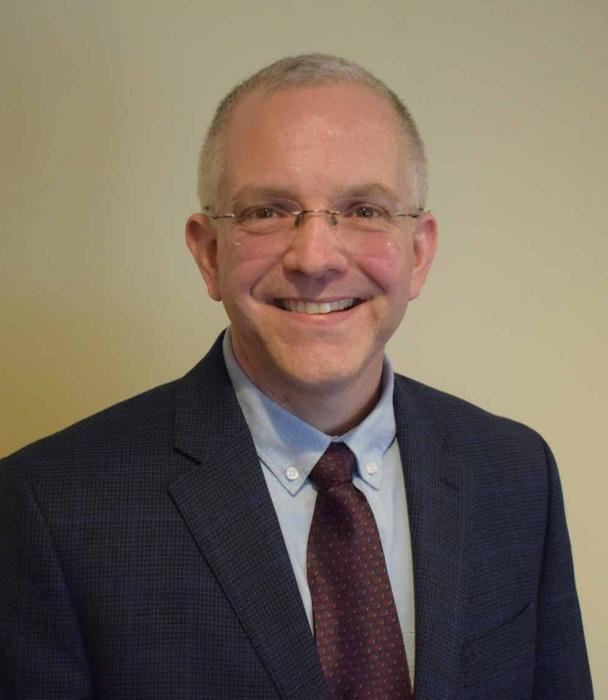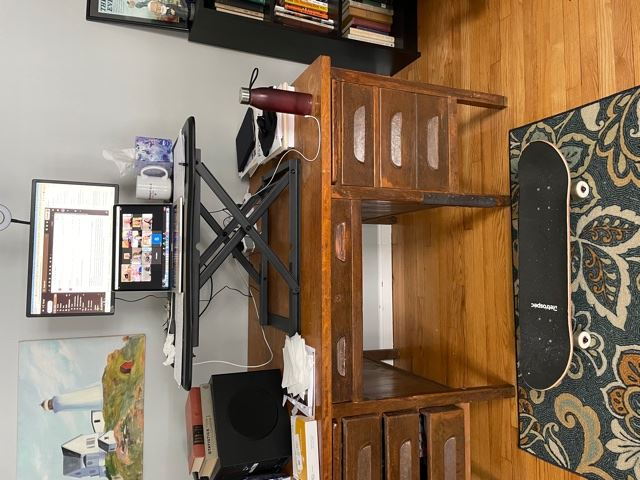 School name: Springfield College
School name: Springfield College
Type of school: Small Private College
School locale (including state and country): Springfield, Massachusetts
How many years have you taught psychology? 29
Classes you teach: Introductory Psychology, History of Psychology, Cognition, Psychology of Language, Statistics, Research Methods
Specialization (if applicable): Cognitive psychology (teaching of psychology)
Average class size: 25
What’s the best advice about teaching you’ve ever received? No matter what you do, don’t mess up the students!
What book or article has shaped your work as a psychology teacher? Teaching Tips, Wilbert McKeachie
Briefly tell us about your favorite lecture topic or course to teach. I love teaching history of psychology. It helps students really contextualize the discipline and provides a glimpse into how thinking about human behavior has evolved over time.
Briefly describe a favorite assignment or in-class activity. I do an activity on dichotic listening to show students how challenging it is to multitask. I have two students read different messages to the class (both drawn from the amazing book by Cialdini on Influence). I divide the class into thirds. 1/3 listens to one person, 1/3 listens to the other and 1/3 listens to both. I then ask for recall. We find that highly salient things are heard by all, but details are lost for things you are ignoring. Very powerful demonstration.
What teaching and learning techniques work best for you? I use a great deal of active learning techniques to help engage students, and then I use topic-based discussion. And, in that, I engage in both meta teaching (talking to students about why we are doing whatever it is we are doing in class) and I help students consider meta cognition. We constantly situate what we are learning in a larger context so students can see relevance either for their discipline, their own lives, or whatever the situation lends itself to.
 What’s your workspace like? I have a standing desk in my office. And, when at home and on zoom, I stand on my skateboard so I can keep moving while teaching. I like to move around a lot, and so when I’m in the classroom, I like being able to circulate around and work with small groups, etc.
What’s your workspace like? I have a standing desk in my office. And, when at home and on zoom, I stand on my skateboard so I can keep moving while teaching. I like to move around a lot, and so when I’m in the classroom, I like being able to circulate around and work with small groups, etc.
Three words that best describe your teaching style. Energetic, enthusiastic, conversational
What is your teaching philosophy in 8 words or fewer? Provide students with the optimal learning environment.
Tell us about a teaching disaster (or embarrassment) you’ve had and how you dealt with the situation. Oh, there are so many! I guess one of the worst was when I was being observed by a colleague and I was moving around the room, and I fell over the projector cord, backwards. I never missed a beat, and kept talking, but the students had a hard time not laughing!
What about teaching do you find most enjoyable? The students. I know it sounds like a cliché, but I enjoy my students so very much, and have learned so much about the world from them. If you take the time to get to know a bit about them, you find out amazing things about their experiences and it helps one grow as an educator.
What is something your students would be surprised to learn about you? There’s not much I don’t talk about in class! They might be surprised to know that I didn’t talk in class at all when I was a first or second year student. They would be surprised because I don’t let them get away with that!
What are you currently reading for pleasure? Company Man by Joseph Finder. It’s a murder/mystery book. Really easy, fun reading. I’m also listening to a Bill Bryson non fiction book about language, Made in America.
What tech tool could you not live without? My smartphone. I do SO MUCH with it.
Has your teaching changed because of the Covid19 pandemic? If so, how? (positive and/or negative changes) Hallway chatter is about pedagogy. I currently run a teaching center, so we often talk about teaching and learning. We also talk about issues with COVID and how we can navigate it. I think that one of the changes is going to be, at least in higher ed, a bigger reliance on technology for faculty who were perhaps a bit shy about it before. I know for me, and I’ve never been shy about technology, I will rely more heavily on my Learning Management System to communicate with students.
